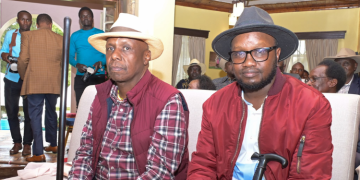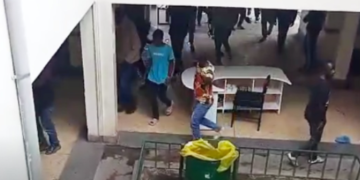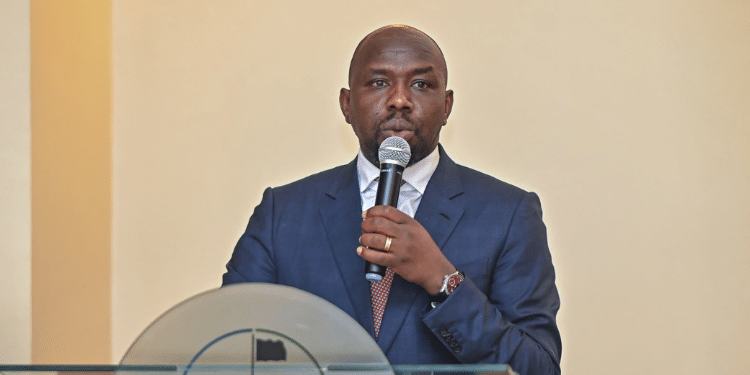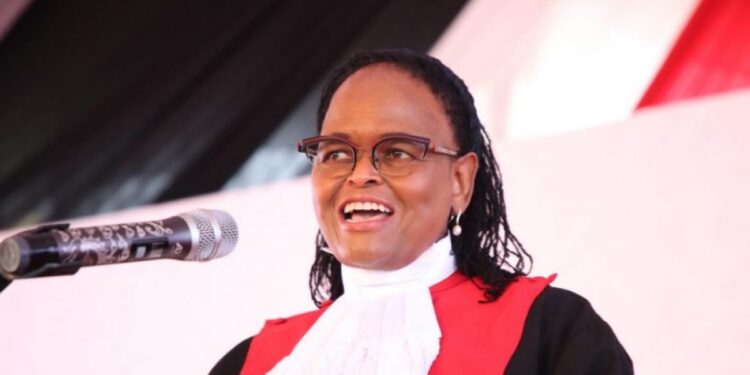Chief Justice Martha Koome has clarified concerns over the operationalization of Judicial services in Huduma Centers after lawyers through the Law Society of Kenya (LSK) protested the move saying it would lead to an increase in unethical practices.
Koome made the clarifications on March 7, 2024, during a meeting with members of the LSK national office at the Supreme Court of Kenya.
First, the Chief Justice lauded the Judiciary’s move to adopt technology in form of e-filling and virtual courts.
However, she noted that some Court users especially the vulnerable and indigent ones, were locked out by the move as they faced barriers in accessing and using the technologies deployed by the courts.
According to Koome, the introduction of Judicial services at Huduma Centers aimed at addressing such incidents.
“We cannot afford to leave these indigent and illiterate self-representing litigants behind,” she said.

Secondly, Koome noted that the operationalization was part of compliance with a Court Order.
The High Court of Kenya in 2021 ordered the Judiciary to develop programs and initiatives to address the risk of digital exclusion.
This order was delivered as the Judiciary rolled out its online filing and virtual hearing programs.
The import of the order was that the arm of government should implement these initiatives to ensure that ordinary members of the public seeking Court services are provided with ICT support.
Also Read: Judiciary Staff Arrested for Issuing Fake Receipts
Also, it ordered that the public be provided with facilitation within reasonable time. The end game was to improve access of common wananchi to Judicial services.
Koome on Masqueraders
According to the Chief Justice, the arm of the government aims at ensuring the use of ICT is rights centric and user-friendly to avoid digital exclusion.
“It is this problem that we are trying to deal with by providing assisted filling desks at Huduma Centers,” she added.
Koome further addressed the issue raised by members of LSK who were concerned that the assisted filling desks provided an opportunity to masqueraders.
On this, she noted that the Judiciary needs to find mechanisms to secure the integrity of the profession without isolating the poor and indigent.
Koome also retaliated that the assisted filling desks are purely registry services.
According to her, what will be offered in the Huduma Centres are registry support services and not the core judicial duty.
“They will be manned by the Judiciary’s registry staff who are under firm instruction to restrict their duties to assist self-represented litigants to upload their pleadings on the e-filling portal,” she affirmed.
Also Read: Martha Koome Clarifies Filing Cases at Huduma Centers
In addition, Koome highlighted that Judicial officers and Judges will not be based at the Huduma Centers.
While addressing judicial independence, she said that infrastructural support does not interfere with it highlighting that there are a number of courts and mobile courts hosted and conducted in government premises respectively.
Issues raised by LSK
The Chief Justice however noted that her arm of government is still open to suggestions from LSK on how to bar masqueraders from using the Huduma Desks.
“The Judiciary is ready to listen and work with LSK to implement and enforce such measures that will go a long way to strengthen the operations of the Huduma Desks and also to comply with the orders of the High Court in the Kituo Cha Sheria case,” she said.
This meeting came after Koome invited the LSK National Office for a meeting to discuss the critical issues affecting the administration of justice which they had raised in their letter while protesting against the rolling out of the services at Huduma Centers.












































































